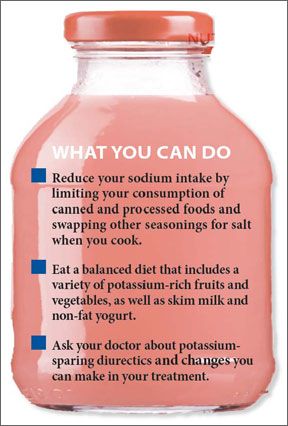A study in the January 12, 2009, Archives of Internal Medicine found that participants with the highest sodium-to-potassium excretion ratio were 50 percent more likely to experience a cardiovascular event than those with the lowest levels. "Although the paper does not address the mechanism by which this occurs, earlier studies have shown that a high potassium level causes blood vessels to dilate and a high sodium level causes vessels to constrict. This could lead to high blood pressure and increase the risk for cardiovascular disease," says Cleveland Clinic hypertension expert Emmanuel Bravo, MD. In the study, the amount of sodium and potassium excreted in a 24-hour urine test was measured periodically over 18 to 36 months. Interestingly, the risk of heart attack and stroke grew only slightly as the output of sodium increased or potassium decreased. However, the sodium-to-potassium excretion ratio was a statistically significant predictor of increased risk: Participants with the highest ratio were 50 percent more likely to suffer a cardiovascular event than those with the lowest ratio.
To continue reading this article or issue you must be a paid subscriber.
Sign in






